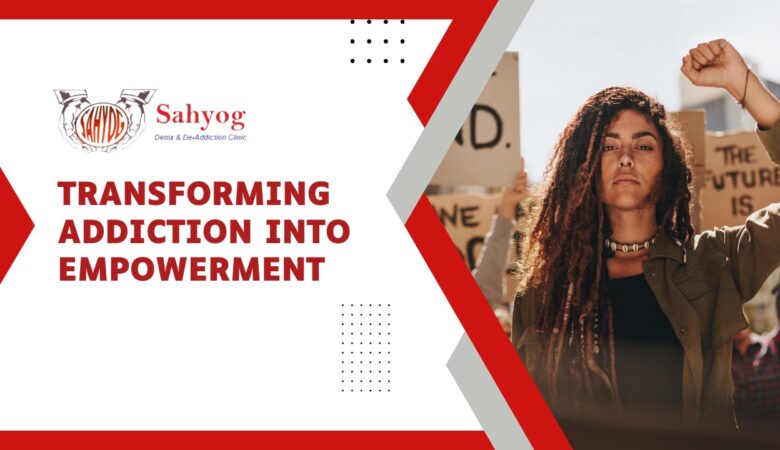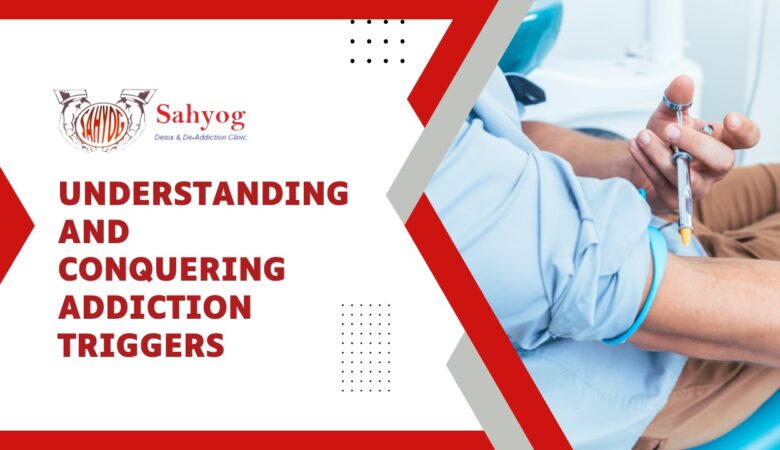Transforming Addiction into Empowerment
Addiction is a complex and challenging journey that can impact every aspect of a person’s life. Despite the struggles and stigma associated with addiction, there is hope for transformation and empowerment. Join us as we explore how individuals can turn their struggles into opportunities for growth, finding strength in community support, personal empowerment, and ultimately embracing a new way of living on the road to recovery. Understanding Addiction and its Impact Understanding addiction goes beyond the surface behaviors we see. It is a complex interplay of genetic, environmental, and psychological factors that can lead individuals down a destructive path. Addiction doesn’t discriminate – it can affect people from all walks of life, regardless of age, gender, or socioeconomic status. The impact of addiction extends far beyond the individual struggling; it affects families, friends, and communities as well. Addiction rewires the brain’s reward system, leading to compulsive drug-seeking behavior and an inability to control impulses. This hijacking of the brain’s circuitry makes breaking free from addiction a daunting challenge. The cycle of cravings and withdrawals can feel insurmountable without proper support and intervention. Recognizing addiction as a disease rather than a moral failing is crucial in developing empathy and understanding for those who are battling this condition. By shedding light on the complexities of addiction, we can begin to shift perceptions and offer hope for recovery through empowerment and compassion. The Journey Towards Recovery Embarking on the journey towards recovery is a courageous step towards a brighter tomorrow. It’s a path filled with twists and turns, challenges, and triumphs. Each day presents an opportunity to grow stronger and more resilient in the face of adversity. Recovery is not linear; it’s a process that requires patience, self-reflection, and commitment. It involves confronting deep-seated emotions, relearning coping mechanisms, and rediscovering one’s sense of purpose. Along the way, there may be setbacks and moments of doubt, but perseverance is key. As you navigate this transformative journey, remember that healing takes time. Be gentle with yourself as you unpeel layers of past trauma and build new foundations for a healthier future. Surround yourself with positivity – whether through therapy, support groups or creative outlets – to nurture your spirit along the way. Every small victory counts on this path towards recovery. Celebrate each milestone achieved no matter how seemingly insignificant it may appear at first glance. Stay focused on progress rather than perfection as you continue moving forward one step at a time toward lasting transformation. Finding Empowerment in the Face of Addiction Addiction can feel like a suffocating shadow, casting doubt and despair over every aspect of life. Yet, within this darkness lies the potential for transformation and empowerment. It’s about recognizing that addiction doesn’t define you but rather challenges you to rise above it. Empowerment begins with acknowledging your struggles without letting them overshadow your strengths. It’s about reclaiming your narrative from the grip of addiction and rewriting it with resilience and determination. Finding empowerment means embracing vulnerability as a stepping stone towards growth and healing. It’s not an easy journey, but by facing addiction head-on, you’re taking back control of your life one step at a time. Each small victory is a testament to your inner strength and capacity for change. By seeking help, building healthy habits, and fostering self-compassion, you pave the way towards lasting empowerment in the face of adversity. Overcoming Stigma and Shame Addiction comes with a heavy burden of stigma and shame that can weigh down on individuals seeking recovery. Society’s judgmental attitudes often make it challenging for those struggling with addiction to seek help without fear of being labeled or ostracized. Overcoming stigma and shame requires courage and resilience. It involves breaking free from the societal stereotypes and misconceptions surrounding addiction, realizing that it is a disease that does not define one’s worth or character. Accepting oneself despite past mistakes is pivotal in the journey towards healing. Embracing vulnerability and reaching out for support are crucial steps in dismantling the barriers created by stigma and shame. Educating others about addiction, sharing personal stories, and advocating for understanding can help shift societal perceptions towards empathy and compassion. By speaking up and standing strong against stigma, individuals in recovery empower themselves while inspiring others to do the same. The Power of Support Systems Navigating the challenges of addiction can feel like an isolating journey, but having a strong support system can make all the difference. Surrounding yourself with understanding and compassionate individuals who uplift and encourage you is key to staying motivated on the road to recovery. Support systems come in various forms – from family and friends to support groups and counselors. These connections provide a safe space for sharing struggles, celebrating victories, and receiving guidance during difficult times. Being vulnerable with your support network allows for genuine connections to form, fostering trust and mutual respect. It’s through these relationships that you can find strength in moments of weakness and encouragement when faced with setbacks. Having someone there to listen without judgment or offer a helping hand can be incredibly empowering. Knowing that you are not alone in your journey towards sobriety instills hope and determination to keep moving forward. Embracing a New Lifestyle Embarking on the journey towards recovery involves more than just giving up addictive behaviors. It’s about embracing a new lifestyle that nurtures your mind, body, and spirit. This transformation requires making conscious choices every day to prioritize self-care and well-being. Adopting a healthier lifestyle may involve incorporating regular exercise, nutritious meals, mindfulness practices, and adequate sleep into your daily routine. These small changes can have a significant impact on your physical and mental health as you navigate the challenges of overcoming addiction. Creating boundaries with toxic relationships or environments is crucial in maintaining sobriety and fostering personal growth. Surround yourself with positive influences that support your journey towards empowerment and fulfillment. Embracing a new lifestyle also means exploring hobbies, interests, and activities that bring you joy and fulfillment beyond substance use. Rediscover passions


